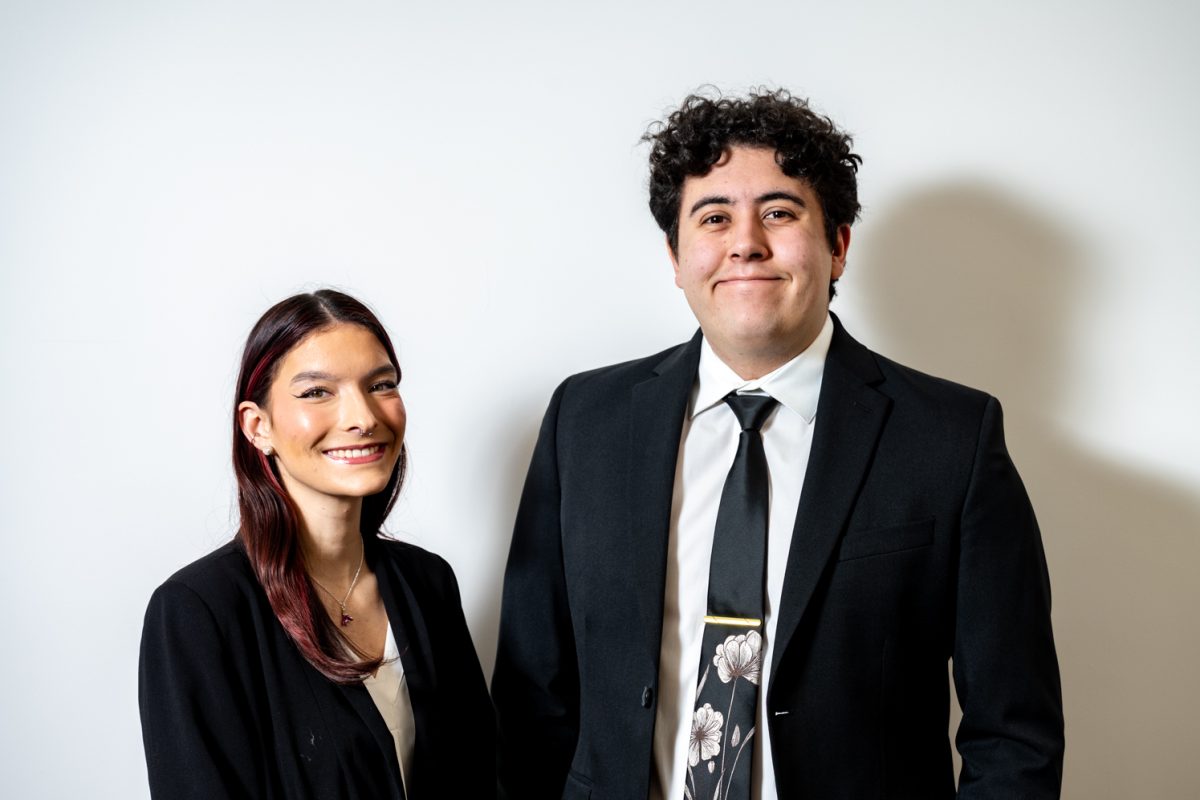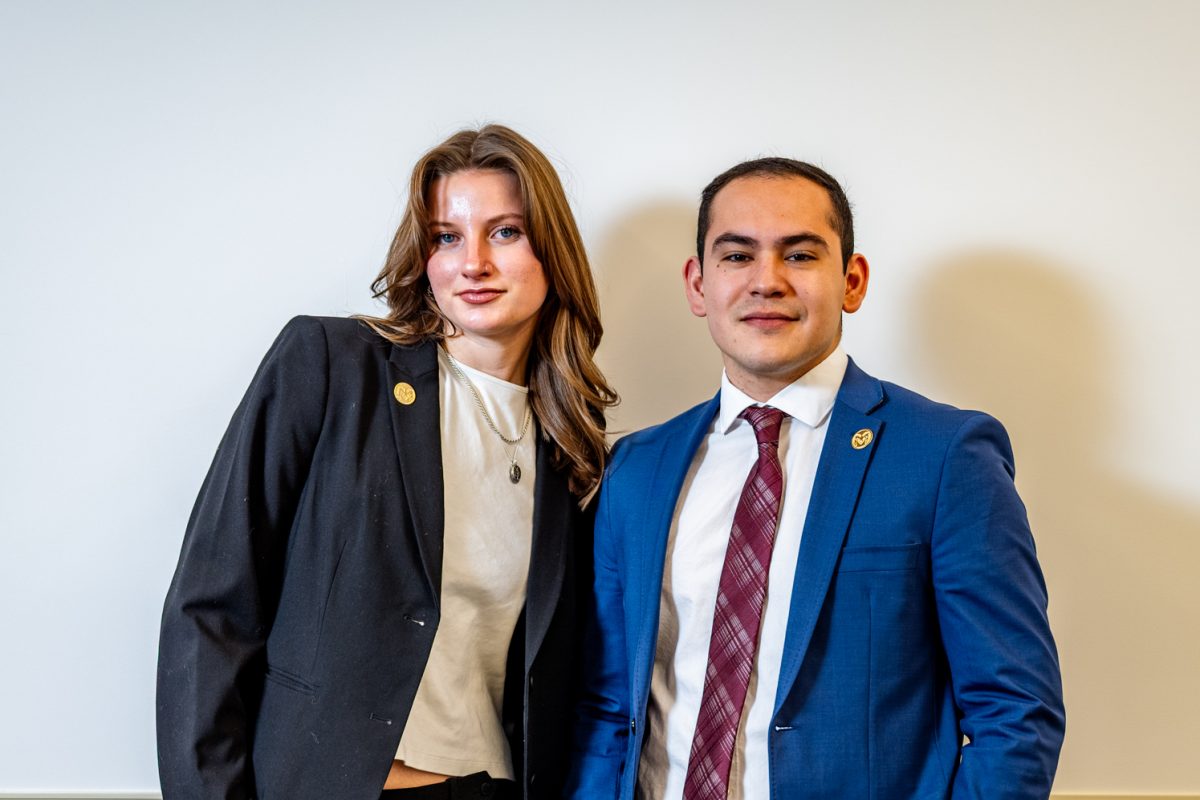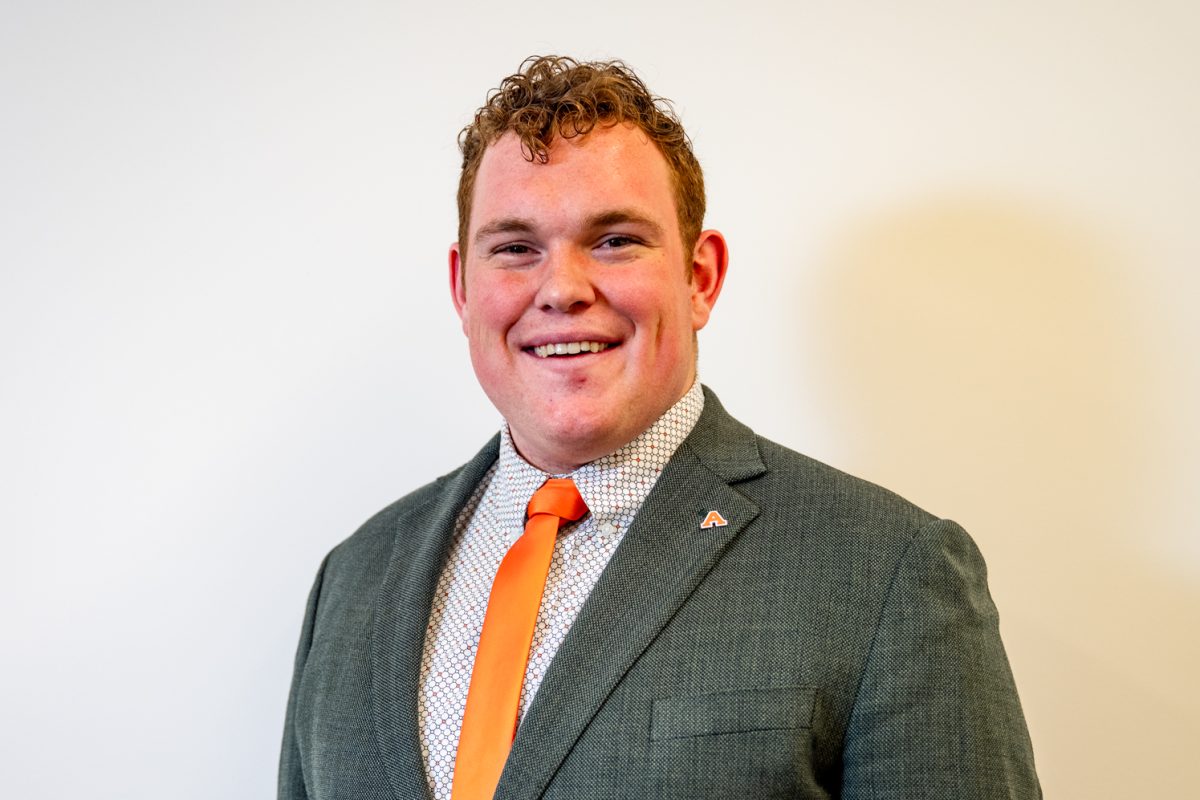After an additional session Tuesday night, the Associated Students of Colorado State University went over old and new business in their Wednesday meeting, passing two resolutions and one lex. The final student fee package for the next academic year was also discussed.
WELL building standards resolution

One of the resolutions passed was a new proposal brought to the Senate about bringing University buildings to WELL standards. This resolution was authored by Tristan Syron and Andrea Fairchild, director of environmental affairs.
After being expedited to a vote, the resolution passed unanimously, with 36-0-0.
According to the U.S. Green Building Council, the WELL is a performance-based system for measuring, certifying and monitoring features of a building that impact human health and wellbeing.
Fairchild presented the resolution with Stephanie Clemons, coordinator of the interior design program at the University.
Fairchild presented a diagram that explained how physical and social environments are important to a person’s health and overall wellbeing. She said that the WELL building standards work to achieve this well-being through physical fitness, mental health and education, reducing air and noise pollution, as well as engaging teachers and community members.
“All of those things actually fall underneath departments within ASCSU so this is really something that would be more of a collaborative thing,” Fairchild said.
90% of a person’s time on campus is spent inside, Fairchild said, so adding WELL standards would have a big impact on people’s physiological and social development at the University.
According to the presentation, the WELL standards would add nourishment, movement, sound and mind to current LEED building standards.
“When a building gets certified to LEED, we’re actually well on the way to a WELL building certification,” Fairchild said. “In the state of Colorado, as well, it is a requirement for a new building to have a goal of achieving a LEED certification.”
Other concepts for the version of WELL standards the resolution proposes are air, water, light, movement, thermal comfort, materials, mind and community.
Syron urged the Senate for a yes vote for this resolution.
“(Fairchild) has brought to her job in environmental affairs a degree of professionalism that we have never seen before,” Syron said. “I never even read the bill and I know 100% that she is always right on these things. I strongly encourage a yes vote.”
According to the resolution, CSU will be the first university in the country to have a WELL certified building.
“WELL actually approached CSU first. They didn’t approach any other university,” Clemons said. “They looked at our sustainability awards first and what we are doing here and they thought it was a great match. They hadn’t approached anyone else.”
Student fee package presented to Senate
Vice President Kevin Sullivan discussed the Student Fee Review Board’s final numbers for the 2020 fiscal year.

According to the presentation, five areas will be seeing no increase. These areas are Athletics, ASCSU, Health Center medical services, University Facility Fee Advisory Board and the Student Disability Center.
Sullivan said areas seeing mandatory increases will be the University Center for the Arts, the Student Resolution Center, Lory Student Center, Ram Events, SLiCE and the Career Center.
Proposed student fees for 2019-2020 academic year
- ASCSU – $24.45 (no change)
- Athletics – $114.92 (no change)
- CSU Health Medical Network – $201.59 (no change)
- CSU Health Network (Counseling) – $52.15 (Increase of $3.90)
- UFFAB – $311.25 (no change)
- UTFAB – $25 (no change)
- Student Disability Center – $2.72
- UCA – $15.90 (increase of $0.29)
- Student Resolution Center – $7.52 (increase of $0.18)
- LSC – $192.62 (increase of $5.34)
- Ram Events – $9.83 (increase of $0.06)
- SLICE – $19.18 (increase of $0.52)
- Campus Recreation – $129.31 (increase of $3.50)
- Career Center – $34.02 (Increase of $1.47)
- Student Legal Services – $8.23 (Increase of $0.74)
- Ram Ride – $6.85 (Increase of $0.78)
- Off-Campus Life – $6.51 (Increase of $0.97)
- WGAC (Interpersonal Violence) – $6.51 (Increase of $1.39)
- ALVS – $19.92 (Increase of $12.43)
“Here are the exciting ones, the mandatory and new resource requests,” Sullivan said.
The total fee package is beneath a 3% increase. This was a goal, Sullivan said.
Sullivan said the student legal services will be increasing their costs because they got a new full-time position to replace two part-time positions. Ram Ride and Off-Campus Life asked for a joint program coordinator, and interpersonal violence will be increasing so they’ll be able to hire more advocates to work, he said.
“Health Network counseling was a really big one and a really important one,” Sullivan said. “The demand is extremely high right now and they had high turnover because the pay was not competitive. So, they raised their pay to make sure they can keep up with demand.”
Adult Learner and Veteran Services was the biggest increase, Sullivan said.
“ALVS has a ridiculous amount of participation and they just can’t house enough people,” Sullivan said.
Due to this, Sullivan said, ALVS will be remodeling to accommodate the high demand.
The bill for this package’s approval was sent to the Budgetary Affair Committee.
Graduation ticket resolution passed
Another resolution passed was a graduation ticket resolution, discussed in a past meeting. This passed with a 16-12-7 vote.
Proposed by Milena Castaneda and Zelle Moore, this resolution recommends a revision to the current six ticket policy the College of Health and Human Sciences has.
According to the resolution’s original presentation, Moore said the resolution relied on the idea of equity and inclusivity. Drawing on her experience as a first-generation student, she said she is impacted negatively by this policy.
Charlotte Lang can be reached news@collegian.com or on Twitter @ChartrickWrites.










